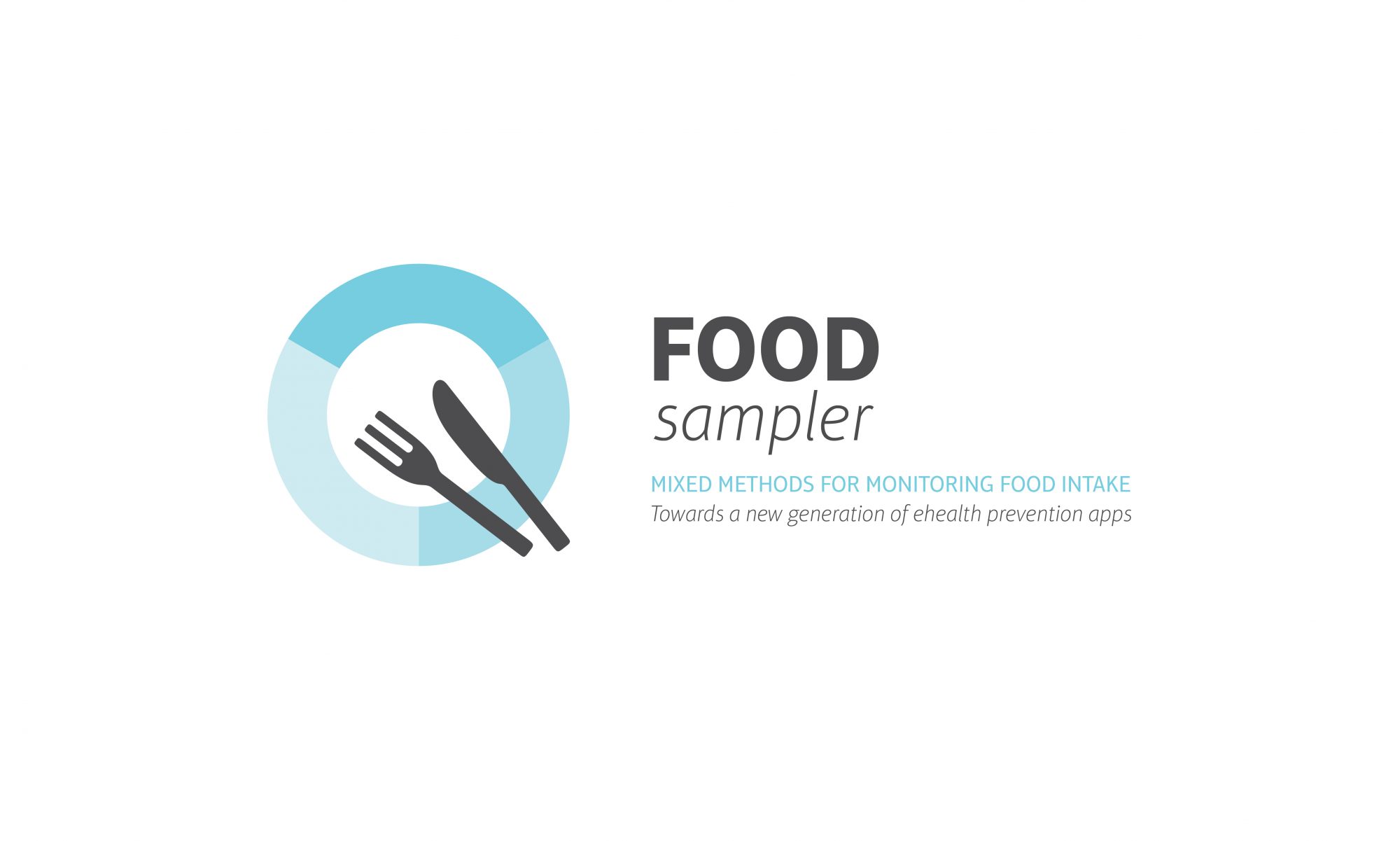Activities done
Kick-off meetings
- Project kick-off meeting (core partners)
- Kick-off meeting extended partners
- 2ndsemester kick-off meeting (core partners)
Communication
- Develop FoodSampler housestyle
- Newsletters to end-user and expert organisations
- Internal newsletters
- Presentation at PervasiveHealth 2018 workshop on Inclusive design
- 2 min pitch at Drive Festival (Dutch Design Week 2018)
Design research activities
During the first semester of the project we’ve conducted most of the planned (user) research to gather insights in relation to:
- Contextual factors that influences food behaviour
- State-of-the-art on self-tracking and self-reporting food behaviour
- Target groups’ needs, preferences and experiences in relation to their health condition
- Target groups’ needs, preferences and experiences with self-tracking and self-reporting food behaviour
For these purposes we have developed the following documentation:
- User research plan & protocol
- Data management plan
- Standard and medical ethics applications (including consent forms)
The main activities conducted have been designed jointly among project partners:
- Focus group with five dieticians
- Contextual interviews with eight clients at their homes
- Interviews with five parents of COACH’s clients
- Co-design session with clients/parents at TU Delft
- Evaluation of user engagement and emotional impact of Digest Inn, a game-based reporting food app
- Evaluation of experiential prototypes for self-reporting food context
To support the design activities, we have developed several design materials:
- Scenario cards (used during interviews)
- Sensitizing booklets (used in preparation of co-design session)
- Persona/scenario (used during co-design session)
- Experiential prototyping
- Data probes to support interview sessions after 6 weeks of Digest Inn use
Design Interventions
Three design interventions with an explorative character have been designed and developed in the period March-December 2019:
- Digest Inn evaluation of user engagement and emotional impact
- Experiential prototypes of food context self-reporting
- Relevance of reporting food context at home
Insights
Contextual food informatics framework
To come
Self-reporting food informatics framework
To come
Target groups’ insights on their condition
- Clients’ insights: #continuousjudgement, #scaredtofail, #confronting
- Experts’ insights: #passive, #wrongexpectations, #personalised
Outcomes
Data publications
To come
Research publications
van Oers, S., Davis-Owusu, K., Romero Herrera, N., Vastenburg, M., Verwijs, M., van Brakel, L., … More Authors (2019). Foodsampler: de context als onderdeel van voedingsinnameregistratie. Nederlands Tijdschrift voor Voeding en Dietiek, 74(3), 21-28.
Romero Herrera, N., Davis-Owusu, K., van Oers, S., de van der Schueren, M., Alberts, J., & Vastenburg, M. (2018, May). FoodSampler: engaging people to contextualise food behaviour: Mixed methods for monitoring choices and triggers of eating habits. In Proceedings of the 12th EAI International Conference on Pervasive Computing Technologies for Healthcare (pp. 269-273). ACM
Master Thesis
Wang, Jia (July 2019) Engaging Tool to Increase Food-related Literacy of People with Low Socioeconomic Status. Design for Interaction Master Thesis under the project FoodSampler.
Zhang, Chi (2019) Designing a new food informatics system: A different angle to record and understand food behaviour. Design for Interaction Master Thesis under the project FoodSampler.
Lieve van Brekel (2018) Self-management tools in practice: needs and expectations of dietitians. MSc Internship Nutrition and Health over the lifecourse. By Lectoraat Voeding en Gezondheid HAN
Ivy Beeren (2018) Contextueel Eetgedrag pilot studie 65+. Door Lectoraat Voeding en Gezondheid HAN
